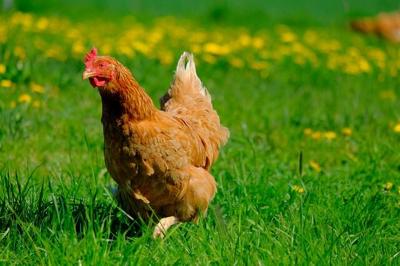
In recent times, free-range poultry farming is enjoying a renaissance. While it's still niche, individuals are beginning to see it as a potential commercial venture, especially as consumers are usually willing to pay more for the higher quality meat that such poultry farms generally boast off.
Let's explore the pros and cons of running a free-range poultry business.
Pro #1: Lower Setup Cost
The cost of setting up a free-range poultry system is significantly lower than the average commercial battery cage system. Setting up a commercial system will need significant poultry supplies, while with the free-range farm, you only need to bother about the coop where some of the birds can decide to stay in when it rains or when they are about to lay eggs.
This can be beneficial to small-holder farmers or individuals who have limited start-up capital.
Pro #2: Tastier Eggs
A free-range poultry bird's diet is usually more varied and healthier in some instances than that of a caged poultry bird. Their diet also contains more protein, unlike the commercial diet that's typically heavy on grains and corn. This results in better tasting eggs.
Pro #3: They Consume Less Feed
Most free-range birds spend most of the day exploring the property and eating everything from bugs to larvae. This means they end up eating little of the feed you put out for them in the chicken coop.
While it might be tempting to stop putting out feed considering how little they consume, it would be wise for you to supplement their free-range diet with a feed mixture that balances their diet. This is to ensure they produce eggs at full capacity.
Pro #4: They Control Insect Populations
Keeping free-range poultry is a great way to keep the insects around your home under control. Remember, chicken and other poultry birds eat almost every type of insects. They also eat fly larvae, reducing the overall population of flies in your home.
Pro #5: Healthier Birds
Free-range poultry birds are healthier due to the amount of exercise the birds get while roaming the farm area. You rarely also see a free-range farm lose all the birds due to a virus ravaging the farm. This happens as the birds are seldom cramped in one place at a time. It is easy for the farmer to identify and quarantine the sick bird.
OK, let's look at the cons.
Con #1: High Death Rates
Due to the exposure to harmful plants, pathogens, and predators, the mortality rates of free-range birds are usually higher than average. Some of these pathogens might not be harmful to the bird but can be harmful to humans who consume the eggs these birds produce.
For example, your birds could consume grass tainted by your weed killer. This can lead to unhealthy eggs for your family and consumers.
Con #2: Lower Egg Production Rates
The biggest problem with free-range birds is the egg production rates. They also produce less meat. This happens due to the following reasons:
- A free-range chicken uses most of its nutrients to provide energy for running around and foraging.
- Breakages and fecal contamination cause egg losses. Fecal contamination is a big problem as it can lead to bacterial contamination.
Because the birds lay eggs below or around the nest, predators can also get to the eggs before you do.
To Free-range or Not?
The final choice is really up to you in the end. It would be best if you weighed the pros and cons before you decide whether to go free-range. One final consideration that you need to bear in mind is market access.
Yes, the free-range birds are pricier, but you need to ensure you have a market willing to pay the going rate.


(0) comments
We welcome your comments
Log In
Post a comment as Guest
Keep it Clean. Please avoid obscene, vulgar, lewd, racist or sexually-oriented language.
PLEASE TURN OFF YOUR CAPS LOCK.
Don't Threaten. Threats of harming another person will not be tolerated.
Be Truthful. Don't knowingly lie about anyone or anything.
Be Nice. No racism, sexism or any sort of -ism that is degrading to another person.
Be Proactive. Use the 'Report' link on each comment to let us know of abusive posts.
Share with Us. We'd love to hear eyewitness accounts, the history behind an article.